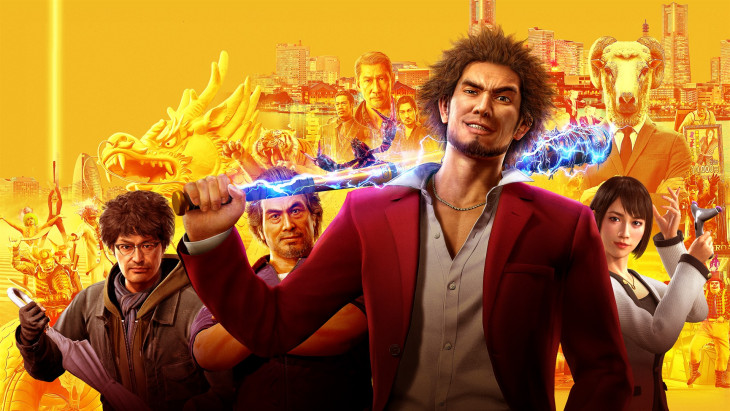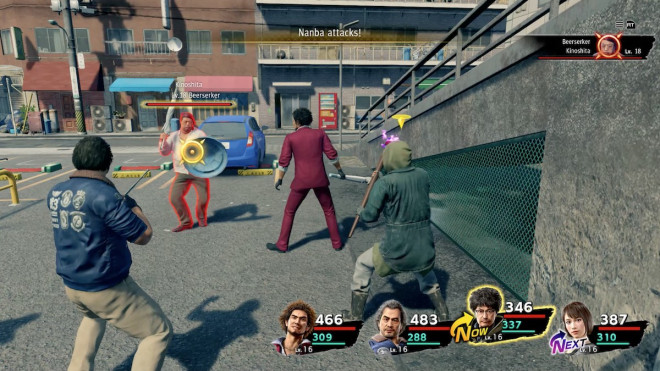
When Yakuza: Like a Dragon was first announced, it raised eyebrows. The series’ signature real-time combat was being swapped out for turn-based RPG mechanics, and long-time lead Kazuma Kiryu was stepping aside for a brand-new protagonist, Ichiban Kasuga. It could have been a misstep—but instead, Like a Dragon manages to deliver a fresh take that’s full of heart, chaos, and charm, while still staying true to the spirit of the series.
Ichiban is a huge part of that success. Unlike the stoic, controlled Kiryu, Ichiban is loud, impulsive, and endlessly enthusiastic—especially about classic RPGs. His love of games like Dragon Quest isn’t just a personality quirk—it becomes the lens through which he sees the world. That’s how the game justifies the surreal, turn-based combat: in Ichiban’s eyes, street punks transform into bizarre class-based enemies, wielding everything from umbrellas to magic fire attacks. It’s ridiculous, and it works.

The new combat system is a bold change and, for the most part, it lands. There’s enough strategy and variety in the job system to keep fights interesting, and the over-the-top special attacks are often laugh-out-loud funny. But over time, the cracks show. Street battles quickly become repetitive, especially when you're just trying to get across town. Worse, they're hard to avoid and necessary for levelling up, making the grind feel old-fashioned—especially when more modern RPGs like Metaphor: ReFantazio allow players to bypass unnecessary fights once they’re strong enough. It’s a system that could definitely use refinement in future entries.
That said, the combat was never the reason I came to the Yakuza series in the first place. For me, the substories have always been the real highlight, and Like a Dragon doesn’t disappoint here. Once again, the game is packed with wonderfully weird, poignant, and laugh-out-loud side quests. Whether you’re helping a crawfish reunite with its owner, dealing with diaper-clad gangsters, or helping someone find their passion again, these moments are where the game shines brightest. They break up the main narrative with charm, humour, and emotional depth—and they’re exactly why I keep coming back to this series.

That’s not to dismiss the main story, which holds up well in its own right. Ichiban’s rise from rock bottom is genuinely compelling, and his makeshift party of down-and-out misfits becomes a believable and likable crew. Themes of loyalty, betrayal, found family, and redemption are handled with surprising maturity. The story can drag in places, especially early on, but when it hits its stride, it delivers both gut punches and big laughs in true Yakuza fashion.
As someone who’s always played the series in Japanese, I can’t speak to the English dub, though I hear it's solid. The Japanese voice acting is excellent, with Kazuhiro Nakaya bringing real depth and warmth to Ichiban. His performance strikes the perfect balance between earnest and ridiculous—exactly what this game needs.

Visually, it’s not groundbreaking, but it looks great on modern consoles and PC. Character models are detailed, and the city of Isezaki Ijincho feels alive, colourful, and packed with things to do. The various minigames—kart racing, business management, karaoke—are as addictive and strange as ever.
Like a Dragon is a confident reinvention. It’s not perfect—the grind and encounter frequency are sticking points—but it captures everything I love about the series. The substories are as strong as ever, the characters are memorable, and Ichiban has absolutely earned his place as the face of the new era.
AUTHOR INFORMATION

 Yakuza: Like a Dragon offers a decent amount of replay value thanks to its job system, minigames, and optional content. However, the lengthy story and repetitive street battles may make a full second playthrough feel like a grind for some players.
Yakuza: Like a Dragon offers a decent amount of replay value thanks to its job system, minigames, and optional content. However, the lengthy story and repetitive street battles may make a full second playthrough feel like a grind for some players.
 This game is wildly entertaining, balancing emotional storytelling with absurd humour and over-the-top battles. Whether you're singing karaoke, fighting in diapers, or running a business empire, there's never a dull moment.
This game is wildly entertaining, balancing emotional storytelling with absurd humour and over-the-top battles. Whether you're singing karaoke, fighting in diapers, or running a business empire, there's never a dull moment.
 The game features intuitive menus, and a clean UI that makes it easy to navigate—even for those new to RPGs. However, there is few easy difficulty settings and the sheer amount of systems and lengthy tutorials might feel overwhelming at first.
The game features intuitive menus, and a clean UI that makes it easy to navigate—even for those new to RPGs. However, there is few easy difficulty settings and the sheer amount of systems and lengthy tutorials might feel overwhelming at first.
PROS / CONS
- Unforgettable characters and story: Ichiban and his crew bring a fresh, emotional, and often hilarious energy to the series.
- Fantastic side content: The substories and minigames are weird, heartfelt, and consistently fun—often stealing the spotlight from the main story.
- Stylish and strategic combat: The turn-based system is flashy, creative, and surprisingly deep, with plenty of variety through the job system.
- Repetitive street battles: Frequent random encounters can drag down the pacing and become a chore, especially when grinding is required.
- Outdated RPG mechanics: The need to level up through unavoidable fights feels old-fashioned compared to more modern systems.
- Slow early-game pacing: It takes a few hours before the gameplay opens up and the story truly kicks into gear.





